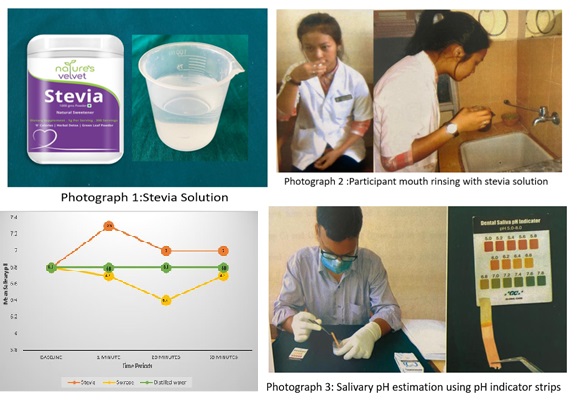Effect of 4.7% Stevia Solution Mouth Rinsing on Salivary pH: An In Vivo Randomized Controlled Trial
DOI:
https://doi.org/10.47070/ijapr.v10i2.2255Keywords:
Stevia, Mouth rinse, Saliva, Dental cariesAbstract
Background: Stevia is a natural, non-caloric sweetener with antimicrobial, antioxidant and anti-cariogenic properties. Aim was to assess and compare the effect of 4.7% stevia solution, 4.7% sucrose solution and distilled water mouth rinsing on salivary pH. Methods: Randomized controlled trial with latin square design was followed involving 15 female participants aged 20-23 years. Participants were randomly allocated to three interventional groups; Group A: 4.7% stevia mouth rinse, Group B: 4.7% sucrose mouth rinse and Group C: distilled water mouth rinse. Salivary pH assessments were done at baseline and 1, 20 and 60 minutes post intervention using salivary pH indicator strips. For statistical analysis, significance level was fixed at p<0.05. One way and repeated measures ANOVA followed by Tukey’s post Hoc tests were used for data analysis Results: There was a significant (p<0.05) increase in salivary pH post rinsing with stevia solution (at 1, 20 and 60 minutes respectively) compared to sucrose solution and distilled water mouth rinsing Conclusion: Stevia solution mouth rinsing showed significant increase in salivary pH at one hour from baseline compared to sucrose and distilled water mouth rinsing. Hence, it may serve as an anti-cariogenic sugar substitute.
Downloads




